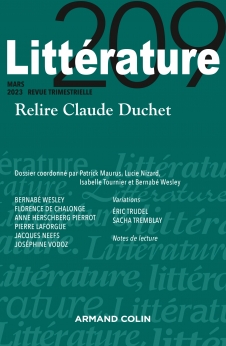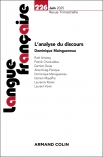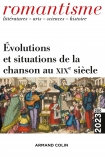
Littérature Nº209 (1/2023)
Pour acheter ce numéro, contactez-nous
Recevez les numéros de l'année en cours et accédez à l'intégralité des articles en ligne.
Cet article propose de revenir sur les analyses que Claude Duchet a consacrées à l’historicité critique du roman du XXe siècle pour en saisir les moments importants, les hypothèses fondatrices et les principes heuristiques. Forte de cette perspective sociocritique, la seconde partie de l’article formule une proposition théorique directement inspirée par le fondateur de la sociocritique. Démarquée du sociogramme défini par Claude Duchet, la notion d’oubliogramme désigne les effacements actifs et passifs de la société française de la IIIe République telle que le roman les donne à lire.
This article proposes to go back on the analyses Claude Duchet has dedicated to the critical historicity of the twentieth-century novel to consider its important moments, its founding hypotheses and its heuristic principles. Armed with this sociocritical perspective, the second part of the article shapes a theoretical proposition directly inspired from the founder of sociocriticism. Differing from the sociogram defined by Claude Duchet, the notion of obliviogram focuses on the active and passive eclipses of French society during the Third republic as the novel gives them to read.

